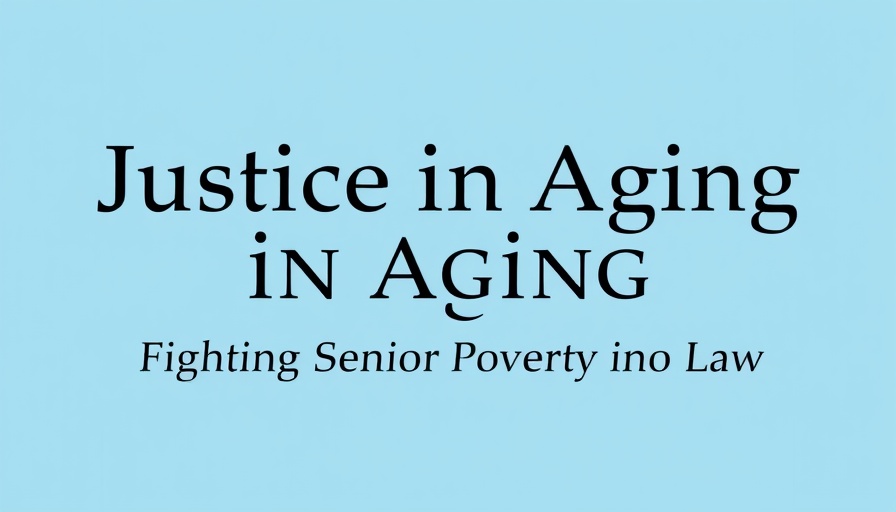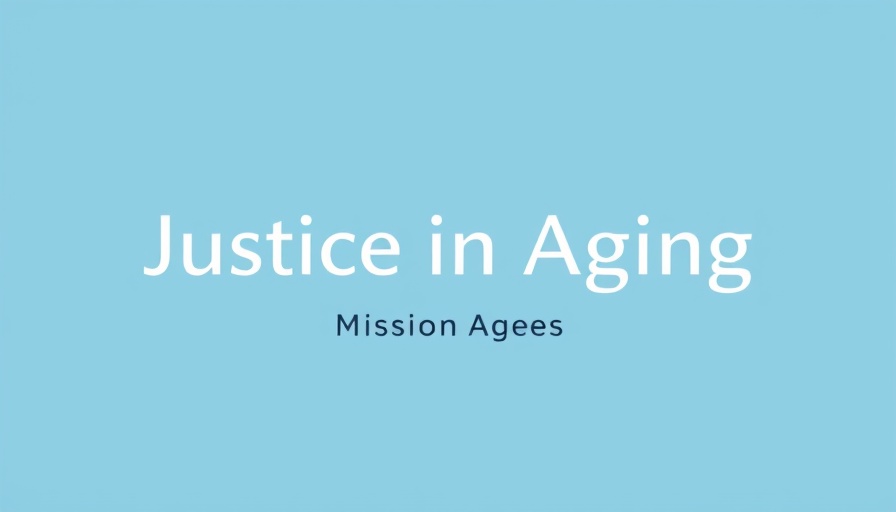
Understanding the Proposed Reconciliation Bill's Impact on Medicare
The proposed reconciliation bill has stirred significant concern among advocates for older adults and individuals with disabilities. Numerous analyses indicate that the bill's components will severely limit access to essential healthcare services for Medicare beneficiaries. Critics, including experts from Justice in Aging and NHeLP, argue that the statistical fallout of the legislation not only jeopardizes financial supports but also risks pushing vulnerable populations further into hardship.
Why Medicare Savings Programs Are Crucial
Medicare can be financially burdensome for individuals, especially those living with disabilities or on fixed incomes. Medicare Savings Programs (MSPs) play a crucial role in alleviating this burden by covering costs such as premiums, deductibles, and coinsurance for low-income enrollees. Typically, these programs are aimed at those earning under $1,781 a month. MSPs help ensure that eligible individuals, often older adults or those with disabilities, can access necessary medical care without debilitating out-of-pocket expenses.
The Consequences of Cutting Medicaid
The Congressional Budget Office (CBO) projects a grim reality: halting the newly adopted MSP rules could strip roughly 1.3 million Medicare enrollees of their Medicaid coverage for Medicare costs. This loss poses substantial risks, as individuals could be unable to afford necessary healthcare services, potentially leading to poorer health outcomes and increased emergency care consequences. The CBO estimates the financial ramifications would exceed $11 billion – a substantial cost that undermines the initial goal of maintaining equitable healthcare access.
Administrative Challenges and the Risk of Increased Burden
Furthermore, the bill introduces additional complications through its proposed Medicaid work requirements. Advocates warn that imposing these requirements could disproportionately affect older adults and those with disabilities who may struggle to comply due to various health conditions. The administrative burden on states and beneficiaries could lead to unintentional disenrollment, creating a vicious cycle of inadequate care and financial instability.
A Historical Perspective on Medicare and Medicaid
Historically, Medicare was instituted to provide essential healthcare services to older adults, while Medicaid covers low-income individuals and families. As these programs evolved, they became paramount in enhancing the quality of life for America’s most vulnerable populations. The current proposed changes risk detracting from the progress made in the past, leaving millions uncovered and unprotected.
Future Considerations: Addressing Inequities Now
Rethinking this proposed legislation presents an opportunity to address longstanding inequities within healthcare access for older adults and disabled individuals. Advocacy for preserving the MSP rules and an emphasis on simplifying eligibility processes can offer real change. Lawmakers should heed the voices of those who would be most affected by their decisions, ensuring that legislation addresses their needs instead of compounding existing difficulties.
The Importance of Advocacy and Collective Action
For seniors and individuals with disabilities, understanding and advocating against detrimental legislative measures is critical. Engaging in community awareness initiatives, reaching out to local policymakers, and leveraging social media can create pressure for change and ensure that crucial programs like MSPs remain intact and accessible for those who need them most.
By staying informed and involved, we can work together to protect vital supports that allow vulnerable populations to lead healthy and dignified lives. It’s essential to communicate with our representatives about the realities facing Medicare enrollees and ensure that legislation serves their best interests.
In protecting the welfare of older adults and individuals with disabilities, we uphold the promise of Medicare and Medicaid: access to affordable healthcare for all.
 Add Row
Add Row  Add
Add 




 Add Row
Add Row  Add
Add 

Write A Comment